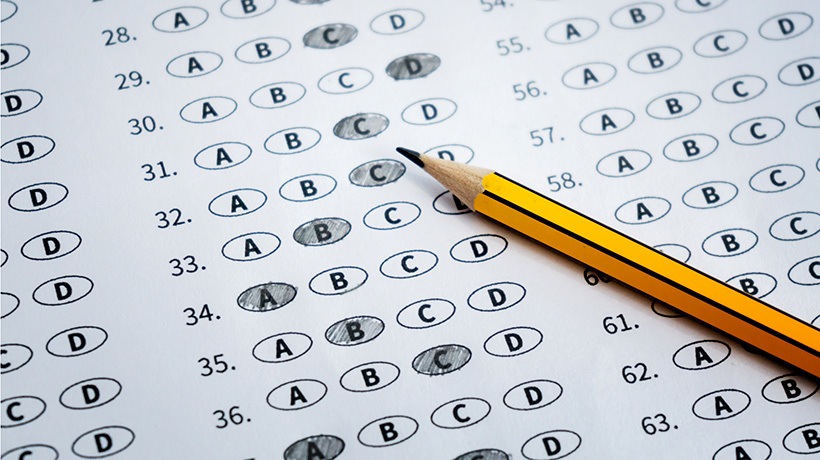Creating a Good Study Environment for your Child
Introduction
If you’re a parent of a teenager, you know that academic success isn’t just about having the right teachers or getting into the best schools. It also hinges on the quality of your child’s study environment. But what exactly does that mean? It isn’t just a spot where your child does homework. It’s a dedicated space optimised for focus, engagement, and effective learning.
Why is a good study environment so critical for students? Research has consistently shown that the right study conditions can significantly improve concentration, information retention, and overall academic performance. In simple terms, where your teen studies is nearly as important as what they’re studying.
Stick around as we dive into the specifics of creating a conducive study environment that aligns with your child’s academic goals.

The Psychological Benefits of Personalising the Study Space
While functionality and utility are important, the aesthetics of a study space shouldn’t be overlooked. Personal touches can go beyond mere decoration; they can contribute to making an ideal study environment that enhances both mood and motivation. Let’s explore how.
Colours and Mood
As touched upon earlier, colours have psychological effects that can either bolster or impede the studying process. For instance, softer hues like blues and greens are generally calming, encouraging focus and longer study periods. On the other hand, vibrant colours like reds and oranges can energise a room but may also increase anxiety levels if used excessively. The trick is to understand your child’s reactions to different colours and use that knowledge to create the perfect study environment.
Decor and Motivation
We all perform better when we’re in an environment that feels ‘right’ to us. For teenagers, adding personal decor like posters, plants, or even favourite books can make a study space feel more like their own sanctuary than a forced workspace. When a room resonates with the individual, it subtly reinforces the desire to spend time there, effectively motivating your child to hunker down and focus on their studies.
The Fine Line Between Personal and Distracting
However, it’s important to strike a balance. While personal items can make a room feel more inviting, too many can be distracting. The objective is to create an ideal study environment that engages without diverting attention from the task at hand.
Customisation for The Win
Flexibility is another key component. As your teen advances through school, be it secondary school or sixth form, their study needs will evolve. The perfect study environment today might require adjustments tomorrow. Features like modular furniture or easily replaceable decor elements can help the room adapt to changing academic demands, retaining its status as the best environment to study in as needs change.
In summary, personalising a study space isn’t just about aesthetics; it’s about creating an environment where your teenager feels emotionally and psychologically equipped to tackle academic challenges. It’s an often overlooked but critical aspect of setting up an ideal study environment.
The Importance of a Dedicated Workspace
Establishing a dedicated workspace for your teenager can be a game-changer in their academic journey. This isn’t just a recommendation; it’s a strategy backed by educational research. So, why does a specific, designated area make such a difference, and how can you go about creating a study environment at home that ticks all the boxes?
The Merits of a Designated Space
Having a dedicated workspace does wonders for mental compartmentalisation. When your teen knows that a particular area is solely for studying, their brain begins to associate that space with focus and productivity. This psychological shift makes it easier for them to transition into ‘study mode’ every time they enter that space, which is invaluable for maintaining a good study environment.
Eliminating Distractions
A crucial aspect of what makes a good study environment is its ability to minimise distractions. Whether it’s the lure of a comfy bed or the constant notifications on a smartphone, distractions are the enemies of productivity. By defining a study-only zone, you’re setting physical boundaries that help reduce these distractions. A well-thought-out workspace should be devoid of non-academic temptations, allowing your teen to devote their full attention to their studies.
Practical Elements
Now, let’s talk about the nuts and bolts of how to create a study environment at home. The space doesn’t have to be large, but it should be organised. Adequate shelving for textbooks, a comfortable but firm chair, and sufficient desk space for a computer and handwritten notes are all important factors. Make sure the area has good lighting and, if possible, some form of natural ventilation. These practical elements contribute to a setting where your teen can work for extended periods without discomfort.
In summary, a dedicated workspace is not just a ‘nice-to-have’; it’s an essential component of an effective study environment. By prioritising this, you’re giving your teenager the tools they need to succeed academically.
The Essentials: Light, Comfort, and Noise Control
You’ve set up a dedicated workspace, but are you sure it’s optimised for maximum productivity? To foster a good study environment, certain fundamental elements need to be in place. Here, we focus on three key essentials: lighting, comfort, and noise control.

The Importance of Good Lighting
One of the most understated but critical factors in setting up a study space is the quality of lighting. Poor lighting can lead to eye strain, fatigue, and even mood swings—all of which can drastically impair your teen’s ability to focus. Proper lighting not only helps in reading and writing but also keeps energy levels up. When considering tips for creating a study environment, never underestimate the power of good lighting.
The Role of Comfortable Seating
When we talk about comfort, we’re not suggesting that your teenager should be studying on a plush recliner. However, an ergonomically designed chair can make a world of difference. Bad seating can result in back pain, fidgeting, and general discomfort, detracting from a good study environment. Investing in a chair that offers good support and encourages proper posture can significantly impact the quality of study sessions.
Noise Control
While some students may claim they study better with music or some background noise, the reality is that a quiet environment is generally more conducive to studying. Extraneous sounds can break concentration, leading to less efficient study sessions. If your home environment is naturally noisy, consider noise-cancelling headphones or soft, ambient sounds to mask distracting noises. Remember, control over noise levels is a pivotal factor in establishing a good environment for study.
By addressing these three essentials—light, comfort, and noise control—you’re not just setting up a study space. You’re crafting an ideal study environment designed to bolster focus, enhance comfort, and maximise productivity.
Tools and Gadgets for an Effective Study Environment
So you’ve got the basics down—a dedicated workspace, good lighting, comfortable seating, and noise control. But if you’re looking to take your teen’s study environment to the next level, consider integrating some tools and gadgets specifically designed to enhance focus and concentration.
Digital Tools

In the digital age, there are numerous apps designed to improve focus and productivity. From timers based on the Pomodoro Technique to apps that block distracting websites during study time, these digital aids can be invaluable for teens struggling with self-discipline.
These add-ons might seem like small touches, but their cumulative effect can be substantial. When it comes to what makes a good study environment, sometimes it’s these finer details that make all the difference. By integrating these tools into your teen’s study space, you’re setting them up for a more focused, efficient, and effective learning experience.
Desk Organisers and Storage Solutions
Clutter is distracting. Period. A desk organiser can keep essential items within reach, without them getting in the way. Storage solutions like shelving units or rolling carts can also keep textbooks and supplies organised, ensuring that the study environment remains as conducive to learning as possible.
Essential Oils for Concentration
Believe it or not, certain scents can actually improve mental clarity. Essential oils like lavender, peppermint, and rosemary have been shown to aid in concentration and memory retention. A simple oil diffuser in the study area can disperse these scents, creating a calming and focus-inducing atmosphere.
Ambient Noise Machines
While we’ve established that quiet space is generally best for studying, some students do find that a bit of ambient noise can help them concentrate. Ambient noise machines or even certain apps can produce sounds like rainfall, ocean waves, or white noise, which can mask more distracting sounds like traffic or conversation. It’s a tip for creating a study environment that’s worth trying, especially if your home is naturally noisy.
Dealing with Distractions
Even the most well-designed study space can fall short if distractions are allowed to infiltrate it. In today’s digital age, distractions like mobile phones and social media are perhaps the most pervasive disruptors of an effective study environment. So, how can you deal with these potential pitfalls?
Mobile Phones
While smartphones are incredibly useful tools for research and communication, they’re also one of the biggest sources of distraction. Social media notifications, messages, and the temptation to quickly check the latest news can quickly derail a study session. Considering the importance of a good study environment, it’s crucial to establish boundaries with mobile phone usage.
Tip: Turn Off Notifications or Use Airplane Mode
One effective way to minimise this disruption is to turn off notifications or switch the phone to airplane mode during study time. If your teen is concerned about missing something important, schedule short, designated breaks for checking the phone.
Social Media
The allure of social media can be potent, making it a significant obstacle in creating a study-friendly environment. Scrolling through feeds offers immediate gratification but accomplishes little in the way of academic success.
Tip: Use Site-Blocking Apps
There are various apps and browser extensions that can temporarily block distracting websites, allowing your teen to focus on the task at hand. Some apps even allow you to set schedules, automatically blocking access to distracting sites during study hours.
The Television Trap
TV shows and movies can wait; academic deadlines won’t. Keep the TV turned off, or better yet, remove it from the study space entirely to preserve the integrity of an effective study environment.
The Power of a Study Schedule
A structured study schedule can also be a powerful tool in minimising distractions. By allocating specific time blocks to different tasks, your teen can better manage their focus and resist the pull of distractions.
In essence, distractions are the natural enemies of any effective study environment. By taking proactive measures to minimise these disruptions, you fortify the study space, enhancing its conduciveness for focused, productive learning.
The Importance of Being Organised
Organisational skills aren’t just for the workplace; they’re crucial for academic success as well. You could have the perfect environment to study, but if it’s cluttered with disorganised notes, textbooks, and other materials, it can impede your teen’s ability to focus and be productive. Here’s why being organised is non-negotiable for an ideal study environment and some tips to help your teen stay on track.
Why Organisation Matters
When your teen’s study space is organised, they spend less time looking for lost items or trying to remember what they’re supposed to be working on. This not only saves time but also reduces stress, making the study experience more pleasant and effective. In short, being organised is essential for maintaining an environment conducive to study.
Physical Organisation
Allocate specific places for textbooks, notebooks, stationery, and even electronic devices. Dedicated storage spaces make it easier to keep track of important study materials, contributing to a more effective study environment. Drawers, bookshelves, or even simple storage boxes can serve the purpose.
Keep a Clean Desk
Advocate for a clean-desk policy. The less clutter there is, the less mental energy is spent on navigating it. Encourage your teen to clear their desk after each study session. This small habit can make a significant difference in how to create a study environment at home that works.
Time Management
Being organised isn’t just about physical space; it’s also about managing time effectively.
Create a Study Timetable
Help your teen create a study timetable that breaks down their tasks into manageable chunks and allocates specific time slots for each. Not only does this make study sessions more focused, but it also provides a roadmap to follow, reducing the anxiety that often comes with looming deadlines.
Use Digital Planners
There are numerous digital planners and time management apps designed to help students stay on track. These tools can send reminders for important deadlines and help your teen allocate their time more effectively.
Being organised, both in terms of physical space and time management, is essential for anyone serious about creating an effective study environment. By taking the time to organise, your teen can transform their study space from a mere room into a powerhouse of productivity.

Hydration and Nutrition
While the focus of creating an effective study environment often centers on physical and digital tools, it’s easy to overlook basic physiological needs like hydration and nutrition. Yet, these elements are essential for maintaining mental focus and overall well-being, both of which significantly impact the quality of study sessions. Let’s delve into why you shouldn’t neglect these factors.
The Role of Hydration
Staying hydrated isn’t just good for physical health; it’s crucial for cognitive function as well. Dehydration can lead to fatigue, headaches, and a notable decrease in focus and mental acuity. All of these symptoms are counterproductive to a study-friendly environment.
Keep a Water Bottle Handy
To ensure your teen stays hydrated, keep a water bottle in their study space. This simple act serves as a constant reminder to take sips throughout the study session, aiding in maintaining a focused and effective study environment.
Nutrition: Fuel for the Brain
It’s common for teenagers to reach for sugary snacks or caffeinated drinks, especially during lengthy study sessions. While these might offer a quick energy boost, they often result in an energy crash later on. Balanced nutrition is key for sustained focus and energy.
Stock Up on Healthy Snacks
Consider keeping a small stash of healthy snacks like fruit, nuts, or whole-grain crackers in the study area. These can offer a much-needed energy boost without the negative effects of sugar or caffeine.
Combining Hydration and Nutrition
A balanced approach to hydration and nutrition complements all the other elements of a study-friendly environment. When your teen’s body feels good, their mind is free to focus on the task at hand, leading to more productive study sessions.
In summary, while hydration and nutrition might seem like afterthoughts in creating an effective study environment, they are, in fact, integral components. By giving them the attention they deserve, you’re setting the stage for a study space that promotes not just academic success, but holistic well-being.
Conclusion
Creating a good study environment for your child involves more than just clearing a desk and providing some pens. It’s about curating a space that minimises distractions, enhances focus, and promotes overall well-being. From adequate lighting and ergonomic furniture to sound organisational habits and proper hydration, every element plays a role in how effectively your child can study.
Why is the study environment important? Simply put, it’s foundational to academic success. A well-thought-out study space encourages regular study habits, enhances concentration, and ultimately leads to better grades and a deeper understanding of the subject matter. It’s not just about making studying easier; it’s about making it more effective.
Who knows about perfect study environments, if not people that have lived it and achieved high academic success. If you are looking for not only a tutor but also a role-model for your child Edumentors is the place to be- offering tuition services from teachers from the UK’s top universities, It could be a big step towards your child’s successful academic life.
In a world rife with distractions and challenges to focus on, the importance of crafting the perfect study environment cannot be overstated. It’s an investment in your child’s educational journey, one that pays off in both immediate and long-term academic achievements.









